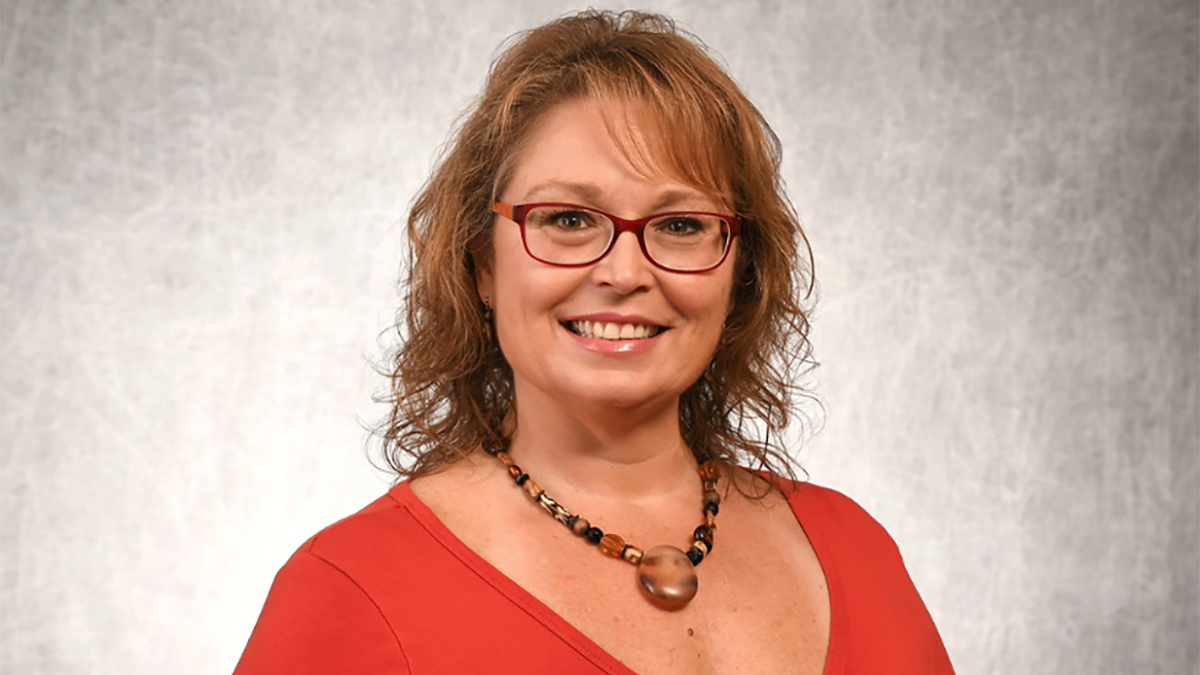Friday, May 8, 2020
Dr. Tricia Nolfi is the program director of Rider University’s Master of Arts in Organizational Leadership
by Keith Fernbach
How can we have constructive conversations about effective leadership when people are so divided on this topic and problematic leadership is increasingly prevalent in today’s society?
Dr. Tricia Nolfi, the program director of Rider University’s Master of Arts in Organizational Leadership and Master of Science in Higher Education Assessment, Analytics, and Change Management, addressed this issue in a presentation to the Rider community on Feb. 4.
The discussion, “Talking about Leadership in Times Like These,” took place as part of the Faculty Lecture Series organized by the Office of the Provost. It explored how we can have respectful conversations about leadership when public perception of leaders is so low and passions are so high.
Nolfi says it was important to address this issue because she sees it coming up so frequently in peoples’ personal and professional lives, and in particular in the organizational leadership courses she teaches.
“Here we have graduate students who are studying this topic and they themselves are really struggling with the lack of role models who are displaying effective and ethical leadership,” she says.
To illustrate just how low the public’s opinion of leaders is, Nolfi pointed to a 2019 Pew Research Center study showing that across all adult age groups, elected officials and business leaders garnered the least amount of confidence in acting in the public’s best interest.
The repercussions can be far-reaching, she says, because if individuals believe their leaders are untrustworthy, unethical and lack morality — and they don’t face consequences for problematic behaviors — then others may follow suit. What this means is that others may be reluctant to comply with the rules of the organization, community or society they represent because that is the behavior being modeled.
Nolfi says that one of the first steps to be able to have a constructive conversation about leadership is to have a better understanding of one’s own behavior.
“When we get into these conversations about poor leadership, whether it’s with our students, with a coworker or anyone else, we should first step back do a self-check,” she says. “We should ask ourselves, ‘What behaviors do I expect from a leader? Am I displaying the behaviors that I am expecting of other people? And what am I doing to contribute to role modeling effective leadership in our society?’ The idea is, let’s not put expectations on others that we’re not doing for ourselves.”
Nolfi also offers suggestions for how these sometimes emotionally charged conversations can be more productive. She says that rather than viewing leadership in absolute terms — a particular leader is all good or all bad — we should be asking each other questions to help us gain a greater understanding of what specifically troubles us and where leaders can do better.
“If we’re locking horns, you can just ask me, ‘What do you think the key issues are? Why do you think that this person is a good leader? Did they display ethical behavior?’ In this way we can think more critically about leadership rather than having a heated conversation where we’re arguing that ‘this person is the best’ or ‘this person is the worst.’ Because that doesn’t help anybody.”
The lecture focused on leadership of all types, including politicians, business executives, religious leaders and local government officials. The discussion even turned to leadership in one’s own workplace, with audience members asking about how they can have these conversations when the leader is their supervisor or boss.
Nolfi’s advice is to avoid going down the path of being overly critical or judgmental. “Start by trying to identify the problematic behavior,” she says. “What is frustrating me? What is the leader not doing that I expect? And look at yourself. Are you demonstrating this same behavior? If you’re saying that you’re really frustrated because your boss is very negative and not supportive, and you’re sitting there complaining by the water cooler, you’re not really demonstrating the behavior you want from others.”
Nolfi is hopeful that the lecture will be beneficial in advancing the dialogue on this topic, particularly because it’s so relevant in a collegiate environment.
“Regardless of our specialization, we all have conversations with our students about leadership,” she says. “Whether we’re talking to people as members of the Rider community or citizens of this country, leadership comes up more than we think, so let’s make those conversations more productive.”

